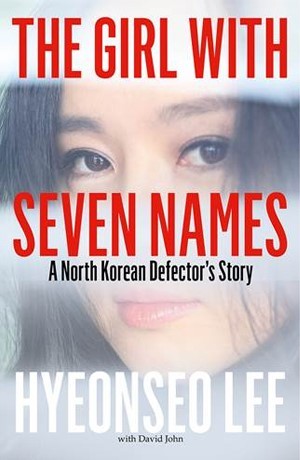Especially when it comes to arts like writings, movies or tv shows, there is no universal good or bad. So, like every single other review you’ll stumble across, this one is purely based on personal preference.

Photo: Kimberley Jackson

Hyeon-seo Lee is mere 17-years-old and one month away from her 18th birthday when she decides to go on a last adventure before she comes of age and thereby becomes fully liable for her actions in the eyes of North Korean law. In the dark of the night she leaves her mother’s house and crosses the border to China to visit her Chinese aunt and uncle for a couple of days.
She never intended to escape North Korea. Coming from a relatively well-off family, she doesn’t have to fight off starvation as other families do, so leaving her home never entered her mind. But things go wrong. The day after her illegal border crossing, a government official shows up at her mother’s house and her absence is officially registered. Her family is put under surveillance as she’s suspected to have defected to China. Returning would mean interrogation, and most likely imprisonment not only for her, but her entire family.
Hyeon-seo knows, she can never return to North Korea. Not without risking her own life, and more importantly, that of her entire family. And thus she begins life as an illegal immigrant in China, always in danger of being uncovered as North Korean.
Review – The story of a defector from North Korea
This was the first book written by a North Korean defector that I read, and the story told in this autobiography is quite different from the other defector’s stories I have come across.
Firstly, Hyeon-seo Lee never intended to flee North Korea. Her escape reads more like an accident, a necessity in order to avoid punishment for illegally visiting her relatives in China. And thus, her view on North Korea is a lot less untainted by anger or hate, and at the same time still more influenced by the propaganda she grew up with.
In North Korea, she was living a relatively good life without starvation–which isn’t the case for many North Korean’s who flee the country. Their main motif usually is to avoid starvation. But Hyeon-seo wasn’t starving. She was just a curious teenager who felt the need to rebel and broke the rules. With dire consequences.
Reading this book, I was surprised at how normal some of the family scenes appeared: joking at the dinner table, gossiping about family members, and an innocent youth.
But Hyeon-seo also makes clear that her parents deliberately never talked about political issues at home, so that the children wouldn’t be able to say anything wrong at school. Small details like these remind the reader that this is a family living in an oppressive regime where one never knows whom to trust, and where one wrong word can land you in a work camp, or worse get you executed.
I have to admit, what was most shocking to me in this book wasn’t the part that happened in North Korea. I mean, by now most of us know what happens in North Korea, so I expected it. What really surprised me were the oppression and discrimination she faced as a North Korean defector in China and South Korea afterwards.
I wasn’t aware what dangers refugees from North Korea have to face, and that they are in constant danger of being caught and sent back to North Korea despite the fact that they would be executed there. China and a lot of neighboring countries have extradition deals with North Korea. The only safe place is South Korea, which recognizes North Korean citizens as its own citizens and awards them citizenship once they cross the border into South Korea.
But getting to the South is a long and dangerous journey, because the only way leads through China. Many refugees pay smugglers or traffickers to lead them safely across the border, but all too often end up being sold as slaves or prostitutes. The situation is horrifying—and the governments are doing nothing to change it in order to protect the delicate peace they have with the North Korean regime.
Conclusion
I recommend this book for anybody interested in North Korea and the political and social status of its citizens.
Hyeon-seo Lee neither overplays nor downplays the horrors of the North Korean regime. Nor does she dramatize her escape. She also doesn’t portray herself as a hero for escaping. On the contrary.
She isn’t afraid to say that she often misses her life in North Korea, but if given the choice she would never return. That makes this book oddly credible to me.
Of course it stands to reason that thanks to her family’s social status and her mother’s activities as a smuggler, she always led a relatively wealthy life (for North Korean standards) there. So her story is by no means representative of every North Korean.
Next up on my reading list is “In Order to Live” by Yeon-mi Park, whose family was starving when they crossed the border. So I’m sure that will be a rather different read.











